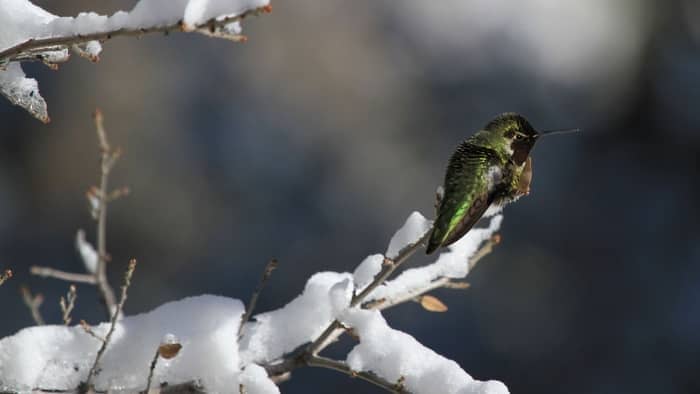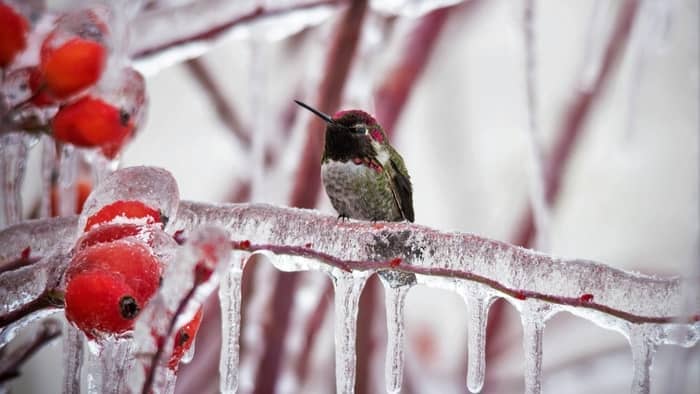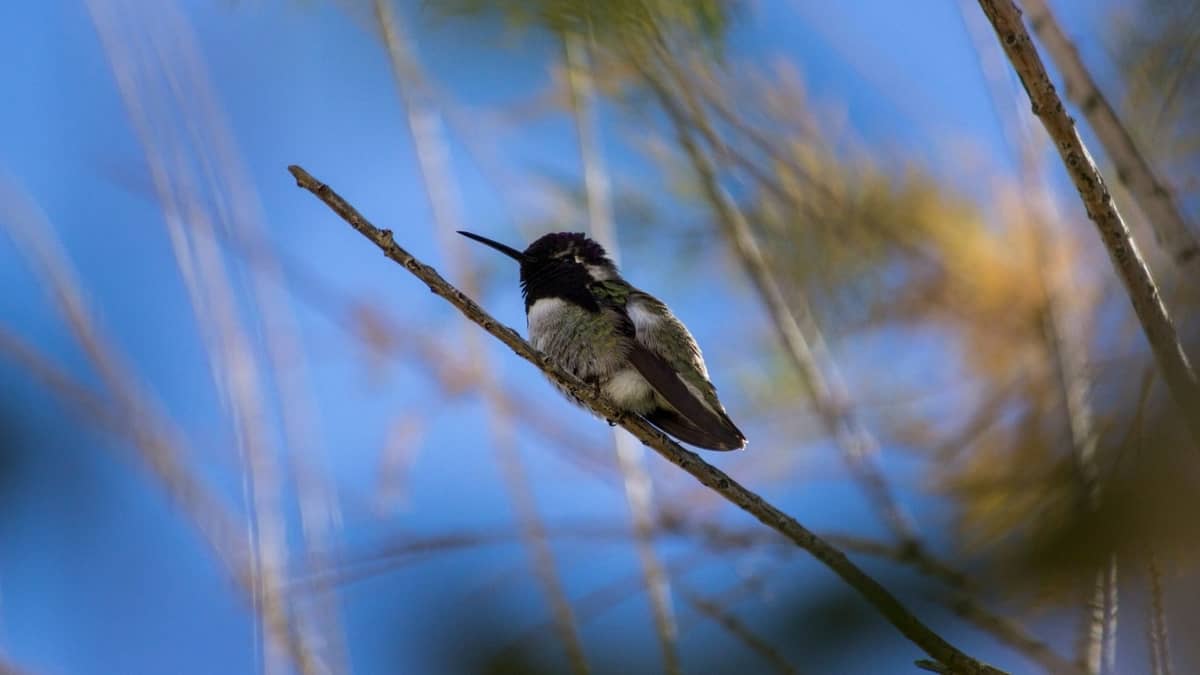Can hummingbirds survive cold weather? Learn new interesting facts about these little birds.
Hummingbirds have been mesmerizing people ever since they first reached the Americas many centuries ago. You will not go wrong if you say that these little creatures are real wonders of the natural world, as they are packing several seemingly incompatible powers in their little body.
There really is no nicer feeling than noticing this bird flying through your colorful backyard. However, nice weather doesn’t last all year; therefore, many wonders “can hummingbirds survive cold weather?” Stay with us and find out.
What Time Is Their Favorite, Most Active Time Of Year?
To make it easier to understand the answer to the question “can hummingbirds survive cold weather”, let us explain to you what their weather preferences are.
Hummingbirds are attracted by warm weather and feeding on sweet nectar, as well as delicious little insects. Given that flowers bloom and insects mostly fly during the warm spring and summer months, it is no wonder that this period is most active in the year. As for temperatures, mild are what they need most.
Did you know that these birds have to consume about half of their weight in pure sugar on a daily basis? We believe that most people would love to swap places with them, and amazingly of all, they also have to eat 2-3 times their weight in total food each day due to their extremely high metabolisms.
Although not usually associated with winter, birders can see (and enjoy) these amazing birds during the colder months of the year. However, how is this even possible? Can hummingbirds survive cold weather? Keep reading because the answer follows below.

Can Hummingbirds Survive Cold Weather?
It is common knowledge that colder days are not rich in flowers and nectar, so it is not surprising that many wonders “can hummingbirds survive cold weather”. Don’t think it has strayed if you notice a hummingbird in your garden on colder days. Moreover, winter hummingbirds are nothing new. There are records from 1950 that confirm this fact.
How is that even possible? Let us explain. In short, during colder or more inclement weather, these birds enter an ‘energy-conservation mode’ called torpor. This condition is caused by a lack of regular food sources, and therefore these birds change their eating habits. Accordingly, hummingbirds switch from sucking nectar to eating available insects.
In this way, these birds have developed an effective method of survival during colder days, which in addition astronauts can emulate when in space. We must not forget to mention that a certain percentage of members of this species migrate to warmer regions, but most of them overwinter in the breeding area.
What Is Torpor And How Does It Happen?
In simple terms, this is reduced the physiological state in which the animal conserves energy by lowering metabolic rate and body temperature. This term was defined by Alexander Wilson in his scientific work “American Ornithology” from 1832, according to which the torpor mode is as deep as death itself.
Once a bird enters this phase, its heart rate drops from 1,260 to 50 beats per minute, and the body temperature drops from 105 ° F (40 ° C) to 48 ° F (8.8 ° C).
Torpor Vs. Hibernation, What Is The Difference?
Just like the torpor, hibernation is also an energy-conservation state for animals. This condition helps hummingbirds but also other species to survive when there is not enough food, which is especially common in the cold winter months. Hibernation is a physiological condition in which an animal lowers its body temperature as well as heart and metabolic rate.
The main difference between torpor and hibernation is in duration. Namely, torpor lasts for an extremely short period of time, sometimes just through the day or night. Hibernation, on the other hand, can last up to several months. Accordingly, if the torpor lasts longer than three or four days, it is hibernation.
In addition, we must point out that a good portion of tropical hummingbirds have such a rigid system that they have the ability to fall into a torpor state on a daily basis, which is also called noctivation.
Now that you know the answer to the question “can hummingbirds survive cold weather”, it’s time to explain how you can help them too.
Providing Help During Colder Days
As we have already mentioned, nectar-bearing flower plants are the main source of their diet, and such plants, unfortunately, do not thrive during the colder winter days. If you want to help them, simply leave the hummingbird feeders all year round. This will allow overwintering hummers to enjoy fresh nectar on a daily basis. Make sure the feeders are colored with appropriate, attractive colors, that they are clean, and that the nectar is freshly prepared.
That would be it, now you know the only correct answer to the question “can hummingbirds survive cold weather”.

To Wrap Things Up
In our opinion, these were the most important reasons why these beautiful birds have the ability to survive colder days.
What is your view on can hummingbirds survive cold weather? Did you have an opinion of them as hardy animals or were you surprised by the answer? Let us know in the comments.
Read more Are Hummingbirds Afraid Of Bees? Top 5 Tips for Ensuring The Best Feeding Conditions
FAQ’s
[rank_math_rich_snippet id=”s-14e19551-2b15-4df1-bcb1-c6a3abe66ca1″]

